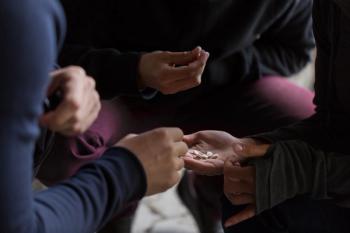
SIDS surges on New Year's Day; alcohol a possible risk factor
Alcohol use appears to be associated with sudden infant death syndrome (SIDS), according to a new study published online in Addiction.
Alcohol use appears to be associated with sudden infant death syndrome (SIDS), according to a new study published online in Addiction.
Researchers from the University of California at San Diego studied 129,090 cases of SIDS and 295,151 infant deaths not related to SIDS from 1973 to 2006. They likewise examined 135,946 late-night (8 PM to 3:59 AM) motor vehicle crashes (1994-2008) that were related to alcohol, assuming that this time window might be high risk for SIDS. Caretakers drinking alcohol during these hours are likely to influence an infant’s sleeping environment. A caretaker under the influence of alcohol might, for example, be less apt to place an infant safely on his back or to properly monitor the infant.
In addition, the investigators looked at 3 comparative measures: expected deaths on New Year’s compared with the observed number of deaths, average number of deaths on the weekend versus weekday, and the death rate from SIDS for infants whose mothers consumed alcohol versus mothers who did not.
Their results showed that the incidence of SIDS spiked 33% on New Year’s Day, which is significantly higher than the expected increase in SIDS during the winter. In comparison, infants who died but not from SIDS did not exhibit a statistically significant spike on New Year’s Day.
People involved in alcohol-related motor vehicle crashes also spiked to 1,016 during the final 4 hours on New Year’s Eve and during the initial 4 hours on New Year’s Day. This is the largest spike for any time of the year.
The number of persons involved in crashes related to alcohol was significantly higher on Saturday and Sunday compared with other days of the week. SIDS cases were also significantly higher on weekends than on weekdays, whereas infant deaths not related to SIDS actually decreased on the weekends.
The death rate from SIDS for infants whose mothers consumed alcohol was 2.64 times the death rate from SIDS who mothers abstained from alcohol.
“This appears to be the first, large-scale study to test the AS [alcohol-SIDS] hypothesis: alcohol-impaired caretakers are less able to protect vulnerable infants,” said researchers. “Our findings suggest that caretakers and authorities should be informed that alcohol impairs parental capacity and might be a risk factor for sudden infant death syndrome. “Investigators should also query the infant’s caretakers about the recent use of alcohol if SIDS is suspected,” they added.
Phillips DP, Brewer KM, Wadensweiler P. Alcohol as a risk factor for sudden infant death syndrome (SIDS). 2010. doi: 10.1111/j.1360-0443.2010.03199.x. Epub ahead of print.
Newsletter
Access practical, evidence-based guidance to support better care for our youngest patients. Join our email list for the latest clinical updates.







